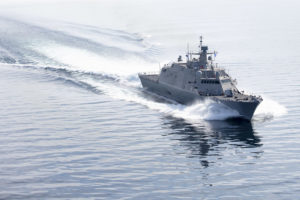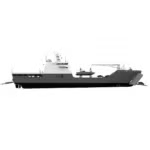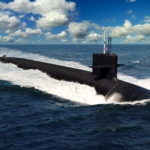
The Navy on Friday notified Congress about a significant but not critical cost breach in the Littoral Combat System’s (LCS) module program caused by canceling the anti-submarine (ASW) mission package. “The U.S. Navy notified Congress of an increase in the Program Acquisition Unit Cost (PAUC) and the Average Procurement Unit Cost (APUC) for the Littoral Combat Ship (LCS) Mission Modules (MM) program that exceeds the original baseline estimate by at least 30 percent and the current baseline by at least…

 By
By 










